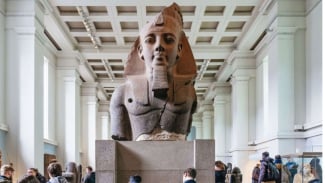5 Benefits of Fasting for People with GERD
- Freepik/katemangostar
Jakarta – Gastroesophageal reflux disease (GERD) is a condition characterized by the reflux of stomach acid into the esophagus, causing symptoms such as heartburn, regurgitation, and chest pain.
While fasting may not be suitable for everyone with GERD, some individuals may find certain benefits from incorporating fasting into their lifestyle under the guidance of a healthcare professional. Here are five significant benefits:
1. Food Intake Regulation
Fasting provides an opportunity for people with GERD to reorganize their diet. By not eating or drinking for long hours during fasting, the opportunity to eat foods that trigger GERD symptoms such as spicy, fatty, or acidic foods is limited. Thus, fasting helps control unwanted acid reflux attacks.
Ilustrasi Gerd, sakit lambung
- Pixabay/ Robystarm
2. Weight Loss
One of the main risk factors for GERD is obesity. Fasting provides an opportunity to reduce overall calorie intake and can help with weight loss. Healthy weight loss can reduce pressure on the stomach and reduce the incidence of GERD.
3. Stomach Recovery
Fasting also gives the stomach a break. With no food or drink coming in during fasting, stomach acid production can decrease. This gives the stomach a chance to recover and reduce inflammation that may occur in people with GERD.
4. Improved Sleep Quality
GERD symptoms such as chest pain, heartburn, and acid regurgitation often interfere with a patient's night's sleep. Fasting can help reduce these symptoms because there is no food or drink intake that can trigger the rise of stomach acid during sleep.
As a result, GERD sufferers may experience improved sleep quality and better rest.
5. Increases Food Awareness
Fasting promotes greater awareness of the type and amount of food consumed. GERD sufferers can use this opportunity to pay attention to foods that trigger symptoms and avoid them in the future. This helps in developing a healthier diet and better managing the GERD condition.
While fasting can be beneficial for people with GERD, it is important to consult a doctor or nutritionist before starting a fasting program. They can provide appropriate advice based on individual health conditions and help plan a safe and effective fast.
With a careful approach, fasting can be a useful tool in managing GERD symptoms and improving overall health.


































